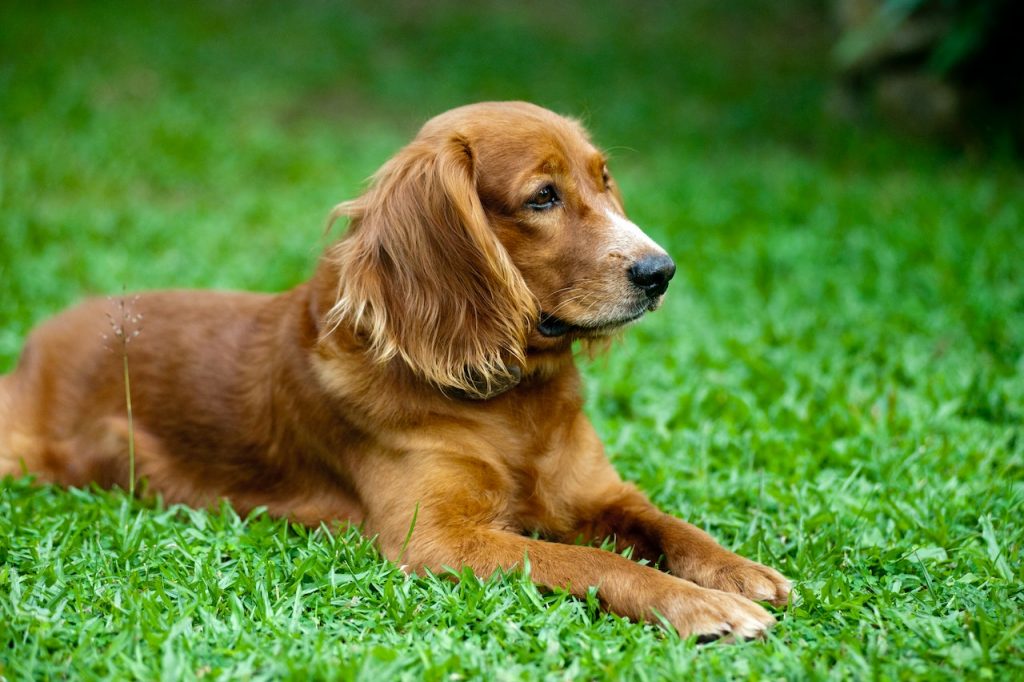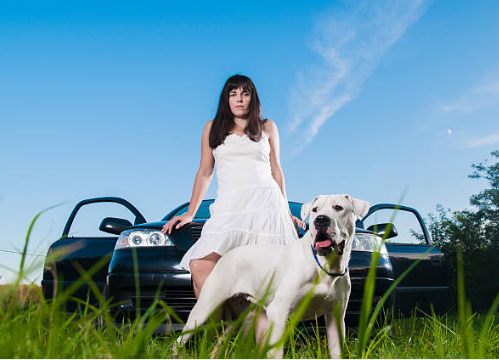DOGO ARGENTINO PUPPIES AND DOGS
FAST FACTS
- Nickname: Dogo, Argentine Dogo, Argentinian Mastiff
- Breed Group: Miscellaneous
- Height: 24-27 inches
- Weight: 75-100 pounds
- Life Span: 10-12 years
DOGO ARGENTINO INFORMATION
DOGO ARGENTINO BASICS
WHERE ARE DOGO ARGENTINOS FROM?
The province of Cordoba in Argentina is where the Dogo Argentino is from. A physician created a breed in the 1930s and 1940s by mating white dogs with big heads and long muzzles with white dogs with short muzzles to hunt giant animals like pumas and boar.
HOW MANY TYPES OF DOGO ARGENTINOS ARE THERE?
There is just one type of Dogo Argentino.
WHICH BREEDS MIX WITH DOGO ARGENTINOS?
- Dango (Great Dane + Dogo Argentino)
DOGO ARGENTINO LIFESPAN
The lifespan of Dogo Argentino is around 10-12 years.
DOGO ARGENTINO SIZE (HEIGHT & WEIGHT)
Most Dogo Argentinos weigh between 75 and 100 lbs. and measure between 24 and 27 inches tall.
DOGO ARGENTINO APPEARANCE
WHAT COLORS DOES DOGO ARGENTINOS COME IN?
The Dogo Argentino is usually white, with a black patch occasionally covering one of his eyes.
HOW MUCH DOES DOGO ARGENTINOS SHED?
The moderate to excessive shedding of Dogo Argentinos may be controlled with routine brushing.
DO YOU NEED TO GROOM A DOGO ARGENTINO?
Dogo Argentinos need to be brushed regularly to prevent excessive shedding.
DOGO ARGENTINO TEMPERAMENT, PERSONALITY & TRAINING
HOW MUCH DO DOGO ARGENTINOS BARK?
The Dogo Argentino barks to warn since it was developed as a security dog and a hunter. However, with the proper training and exercise, you can get any dog to stop barking as often.

IS DOGO ARGENTINOS GOOD WITH KIDS?
Dogo Argentinos were traditionally not raised to be violent towards other people and are exceptionally kind and protective of their family, even youngsters. However, this strong breed must be socialised early to the appropriate behaviour with young children.
To ensure the safety of both the kid and your Dogo Argentino, it is advised that your youngster constantly be monitored when dealing with the breed.
ARE DOGO ARGENTINOS GOOD FAMILY DOGS?
The Dogo Argentino is a breed for knowledgeable dog owners who are capable of caring for a dog of this size and temperament. The Dogo Argentino needs plenty of room to move around and have mental and physical activity. They are incredibly bright, lovable, dedicated, loyal, and obstinate. A self-assured owner who will establish clear boundaries of control is necessary for the Dogo Argentino.
IS DOGO ARGENTINOS GOOD WITH CATS?
Due to its unusually high prey drive, the Dogo Argentino is not the ideal cat partner. But, of course, each dog (and cat) has unique preferences and temperaments. Still, you may be very sure that your Dogo Argentino and your cat might get along well if they were appropriately socialised or introduced at a young age.
DO DOGO ARGENTINOS TRAIN EASILY?
The Dogo Argentino is exceptionally bright, but it’s also fiercely independent and occasionally obstinate. As a result, the breed needs a self-assured, knowledgeable trainer to set up distinct control parameters and provide enough mental stimulation.

DOGO ARGENTINO HEALTH
DOES DOGO ARGENTINOS HAVE A LOT OF HEALTH PROBLEMS?
A strong, highly hardy breed with a high capacity for pain tolerance is the Dogo Argentino.
WHAT DISEASES ARE DOGO ARGENTINOS PRONE TO?
- Hip or Elbow Dysplasia: Hip and elbow dysplasia are two of dogs’ most prevalent skeletal disorders. Both conditions cause aberrant growth or malformed elbow or hip joints and are related disorders. The joints and sockets can’t correctly connect because of the irregular form, so they rub and grind instead of moving quickly. Contrary to hip dysplasia, which primarily causes joint instability, elbow dysplasia frequently causes bone or cartilage fragments to come free and irritate the joint tissues. Dysplasia-related rubbing can lead to several problems, including discomfort, lameness, and secondary osteoarthritis. If discovered before the beginning of arthritis, surgery can be performed to repair the joint. If you are rescuing a Dogo Argentino, have him examined by a veterinarian to see whether he currently has dysplasia or is susceptible to developing it. This will help you determine what kinds of activities and exercises he can endure.
- Others: The Dogo Argentino may be more vulnerable to skin conditions and deafness linked to pigmentation than most white canines. A thyroid disorder called hypothyroidism causes low hormone production and can lead to obesity, low energy, and a brittle coat that can occasionally affect Dogo Argentinos. A veterinarian could advise having the dog undergo joint, vision, and hearing tests to detect these problems.

PURCHASING VS ADOPTING A DOGO ARGENTINO
HOW MUCH DOES A DOGO ARGENTINO COST?
A Dogo Argentino can be adopted for much less money than one would pay to purchase one from a breeder. A Dogo Argentino adoption costs about $300 to cover the costs of caring for the dog before adoption. In comparison, buying a Dogo Argentino from a breeder may be unaffordable. The price range for them often ranges from $1,000 to $4,000.
WHERE CAN I ADOPT A DOGO ARGENTINO
A rescue specialising in Dogo Argentinos would be the most straightforward approach to adopting one.
DOGO ARGENTINO RESCUE ORGANISATIONS
Many wonderful Dogo Argentinos are frequently available for adoption at nearby animal shelters or rescues.
WHERE CAN I FIND A DOGO ARGENTINO BREEDER?
Before you purchase a puppy from a breeder, we advise you to rescue a Dogo Argentino (or any other dog). In need of homes are the millions of purebred dogs who are homeless around the nation. A Dogo Argentino adoption may profoundly alter both the adopter’s and the dog’s lives.
Getting a puppy from a reputed breeder is safer if you still have doubts and want to buy a Dogo Argentino from a breeder. When working with a breeder, be sure that the breeder you’re buying from genetically tests their animals. You should also double-check the puppy’s health records. Finally, ensure the breeder will return any animals they sell if they cannot keep them in their home for whatever reason. Confirm they are dedicated to finding those animals’ new homes if necessary.

